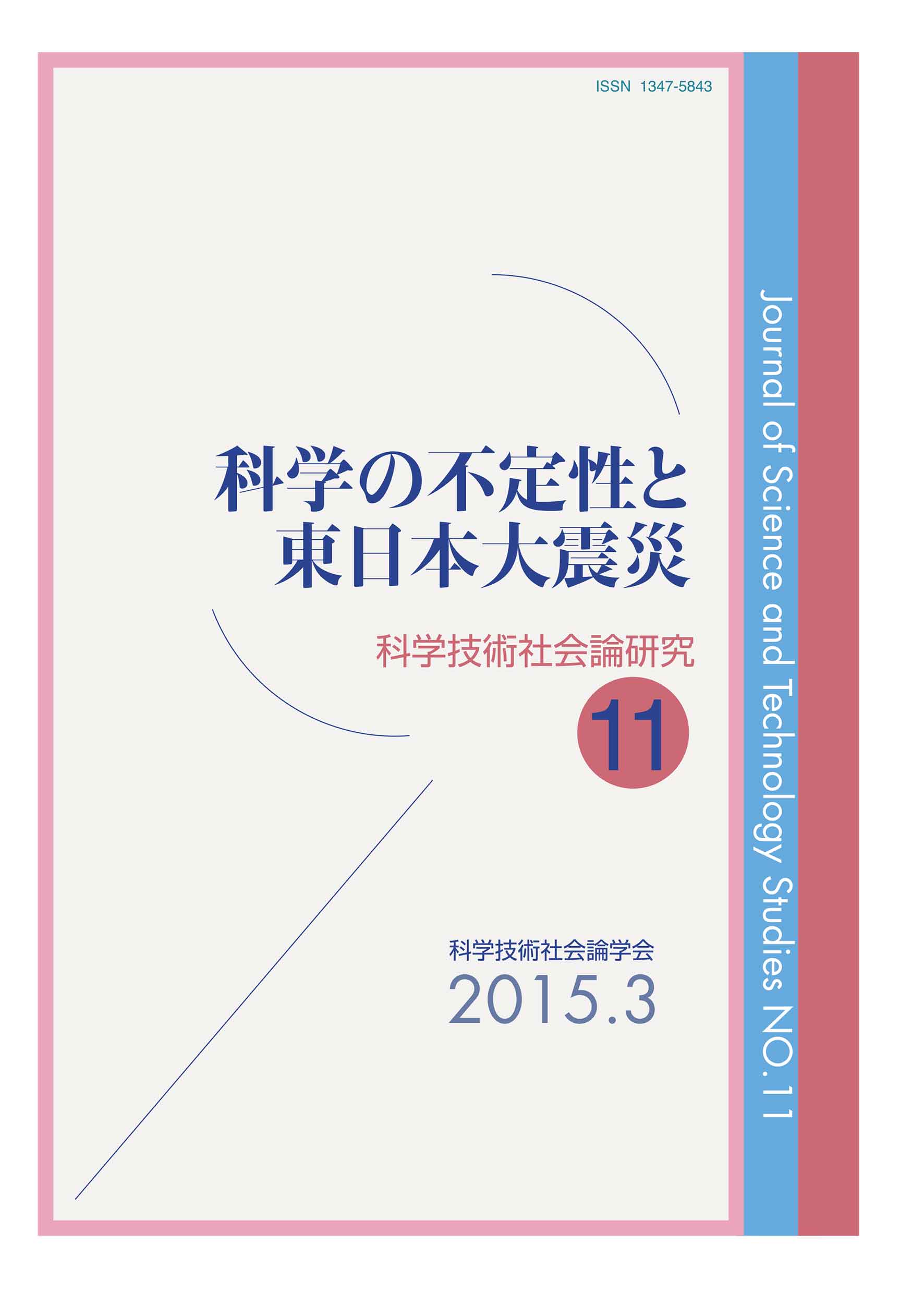Volume 11
Displaying 1-14 of 14 articles from this issue
- |<
- <
- 1
- >
- >|
-
2015Volume 11 Pages 7-8
Published: March 10, 2015
Released on J-STAGE: September 11, 2023
Download PDF (180K)
Article
-
Article type: Article
2015Volume 11 Pages 9-30
Published: March 10, 2015
Released on J-STAGE: September 11, 2023
Download PDF (564K) -
Article type: Article
2015Volume 11 Pages 31-49
Published: March 10, 2015
Released on J-STAGE: September 11, 2023
Download PDF (526K) -
Article type: Article
2015Volume 11 Pages 50-67
Published: March 10, 2015
Released on J-STAGE: September 11, 2023
Download PDF (725K)
-
2015Volume 11 Pages 68-85
Published: March 10, 2015
Released on J-STAGE: September 11, 2023
Download PDF (424K)
-
2015Volume 11 Pages 86-102
Published: March 10, 2015
Released on J-STAGE: September 11, 2023
Download PDF (584K)
-
2015Volume 11 Pages 103-106
Published: March 10, 2015
Released on J-STAGE: September 11, 2023
Download PDF (227K)
Article
-
Article type: Article
2015Volume 11 Pages 109-122
Published: March 10, 2015
Released on J-STAGE: September 11, 2023
Download PDF (527K)
Topic
-
2015Volume 11 Pages 125-128
Published: March 10, 2015
Released on J-STAGE: September 11, 2023
Download PDF (222K) -
2015Volume 11 Pages 129-132
Published: March 10, 2015
Released on J-STAGE: September 11, 2023
Download PDF (379K) -
2015Volume 11 Pages 133-135
Published: March 10, 2015
Released on J-STAGE: September 11, 2023
Download PDF (182K)
Book Reviews
-
Article type: book-review
2015Volume 11 Pages 137-139
Published: March 10, 2015
Released on J-STAGE: September 11, 2023
Download PDF (234K)
-
Article type: research-article
2015Volume 11 Pages 141-142
Published: March 10, 2015
Released on J-STAGE: September 11, 2023
Download PDF (158K)
-
2015Volume 11 Pages 146
Published: March 10, 2015
Released on J-STAGE: September 11, 2023
Download PDF (126K)
- |<
- <
- 1
- >
- >|
